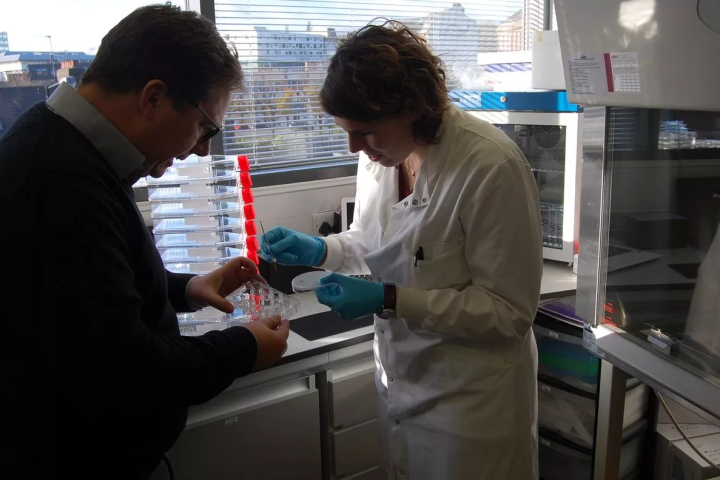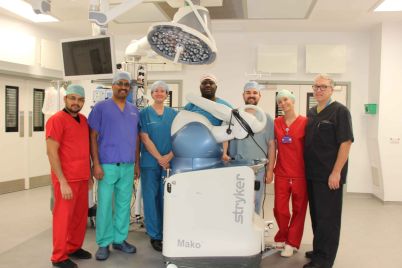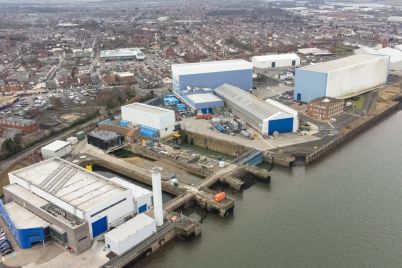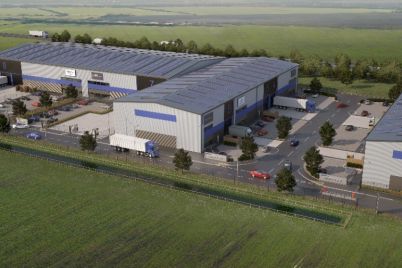A Newcastle biotech company once hailed as a pioneer in the future of food and medicine has collapsed with debts approaching £1m, underlining the high stakes of innovation in one of the most competitive corners of science and technology.
Cellularevolution Ltd, better known as CellRev, entered administration on 12 August, bringing an abrupt end to seven years of research, growth and hope. The closure cost nine staff their jobs and marked the downfall of a business that had once been a flagship of the region’s life sciences cluster.
“Proud. Sad. Philosophical.” Those were the words of CEO Chris Green when he announced the news on LinkedIn. It was a short but telling summary of a journey that saw the company attract millions in investment, file multiple patents, and work with global partners on next-generation meat alternatives and vaccine development, only to run out of time and funding before it could cross the threshold into commercial success.
Founded in 2018 by Dr Martina Miotto and Professor Che Connon as a spinout from Newcastle University, CellRev began with a breakthrough enzymatic platform designed to solve some of the biggest bottlenecks in cell culture. The technology offered potential applications across a wide spectrum, from cultivated meat to cell and gene therapies. Investors responded early, with more than £4m raised alongside Innovate UK grants. At its peak, the company was a rising star in the field, collaborating with multinational players and presenting Newcastle as a serious contender in the global biotech landscape.
From the outset, the firm’s mission revolved around CellRev lab grown meat. Cultivated meat, often called “slaughter-free” or “clean” meat, is grown directly from animal cells in a laboratory, bypassing traditional farming. The field gained global attention when Dutch researchers unveiled the world’s first lab-grown beef burger in 2013. CellRev’s contribution was to tackle two of the industry’s thorniest challenges: removing the need for animal-derived serum and shifting production from small-scale batches to continuous, scalable growth. Its bioreactor and synthetic coating technologies promised to make sustainable meat not only possible but potentially affordable.
That ambition resonated in Newcastle, where leaders were eager to showcase the city as a home for bold scientific innovation. When CellRev moved into The Biosphere, a state-of-the-art laboratory space on Newcastle Helix, civic leaders described it as a sign of the region’s momentum. Councillor Ged Bell, then Cabinet Member for Employment and Culture, declared at the time: “Newcastle is a popular hot spot for innovative and ambitious life science companies. A huge welcome to CellulaREvolution, who have joined this growing life science cluster and our collaborative eco-system on Newcastle Helix. Seeing continued interest in The Biosphere signals confidence in our city as a place to locate and grow a business. The commercialisation of life science research, not only supports the growth of our thriving life sciences sector, it creates jobs and opportunities for the next generation.”
Others echoed that sense of optimism. Luke Dunnett, Property Business Manager at The Biosphere, called the company “some of the region’s best talent and minds” and praised its role in enhancing Newcastle’s global reputation as a hotspot for life sciences. “We are delighted CellulaREvolution will be joining the many companies within the Biosphere that look to improve the lives of people through their innovative research. We look forward to supporting CellulaREvolution on their journey towards commercialisation.”
That journey, however, would not follow the path originally envisioned. In late 2022, after an ambitious joint venture with BSF Enterprise to produce lab-grown fillets faltered, CellRev pivoted away from cultivated meat and towards life sciences. Green later described this period as “version 2” of the business. From 2024, the company focused on vaccine development as a beachhead, while also filing three patent families, securing a spot on the BioTools Innovator Program, and attracting attention from pharmaceutical companies and distributors.
For a time, the strategy appeared to work. Pilot projects were launched and conversations with potential partners gave reason for hope. But the harsh realities of biotech funding soon intervened. “It’s a story of constant headwinds, amazing execution, and a lot of ‘nearly’ moments,” Green said. “We couldn’t deliver commercial milestones fast enough to secure Series A investment. The bar is higher than anyone (in 2021) could have foreseen, and we were operating in Life Sciences (if you know you know).”
By the summer of 2025, the company’s financial position had become unsustainable. Documents filed at Companies House revealed a deficiency of £971,097 at the time of collapse. While the firm held £81,142 in cash, £527,073 in equipment, and a grant claim worth £31,245, these assets could not offset mounting liabilities. Among the creditors were suppliers, consultants, property firms and logistics companies, with unsecured claims totalling £62,667. A significant £800,000 convertible loan note and more than £100,000 owed to employees underscored the scale of the challenge.
Administrators Ed Connell and Mike Kienlen of Armstrong Watson were appointed to handle the process. In a statement, they confirmed: “Following their appointment, the joint administrators have made all staff redundant and are working with their agents, Hilco Valuation Services in relation to realising the assets of the company.”
For those inside the business, the collapse was as painful as it was premature. Green wrote in his farewell that “we are still adamant that what CellRev set out to do is transformative and very much needed; however, we ran out of time. Great people, loads of progress, and a lot learnt. I hope everyone, past and present, has taken something from their time with CellRev. I know I have. A HUGE thanks to all of our supporters over the years. Sincerely.” He paid tribute to Miotto, saying: “It all started with this woman, Martina Miotto, PhD, (CSO and co-founder) and so it shall end with her smiling face, too.”
Two weeks after the announcement, Green offered a poignant coda. In a follow-up comment, he revealed that even as the business closed, opportunity was knocking. “Evidence that the end came too soon,” he wrote. “First Pharma customer responded to ‘get the paperwork sorted’ today. So close, yet so far.” Miotto, in reply, expressed what many must have felt: “This is one of those instances where I wish we could press the ‘rewind’ button in real life.”
For Newcastle’s life sciences sector, the loss of CellRev is both a setback and a reminder of the fragility of innovation. The Biosphere remains home to an array of spinouts and biotech firms, from 3D Bio-Tissues to NewCells Biotech, each aiming to commercialise cutting-edge research. Their presence is proof of the city’s ambition, but also a cautionary tale: without sustained funding and the ability to convert science into revenue quickly, even the most promising ventures can falter.
The cultivated meat industry itself continues to attract investment and media attention worldwide, with some products edging closer to regulatory approval and commercial rollout. Yet the collapse of CellRev lab grown meat highlights how challenging the journey remains, especially for smaller companies competing in a capital-intensive field.
In the end, CellRev’s story is not only about financial shortfall or market timing. It is about vision, resilience, and the human cost of pursuing bold ideas in an unforgiving sector. “Proud. Sad. Philosophical.” Green’s opening words may well stand as the epitaph for a venture that promised so much and still leaves behind knowledge, patents and inspiration that may yet fuel future success stories.















